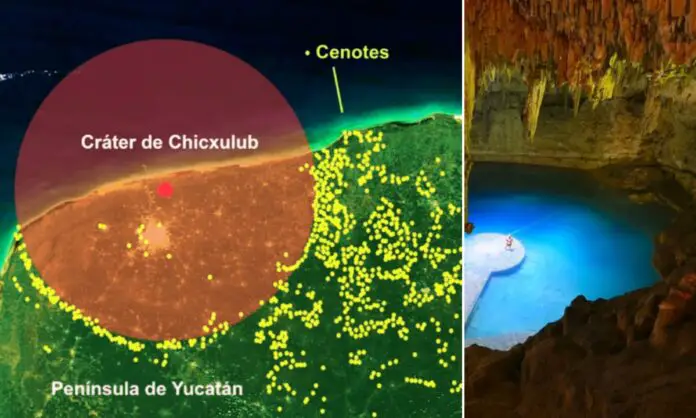An expert has raised concerns about cancer cases linked to water contamination in Yucatán, where arsenic and mercury have been detected in blood and breast milk. The hydrological reserve of the Yucatán Peninsula is critically contaminated and overexploited, particularly in the ring of cenotes. Researcher Eduardo Batllori Sampedro from Cinvestav has linked these contaminants to cases of cervical and breast cancer.
What is the Ring of Cenotes?
The semicircular ring of cenotes in Yucatán spans 58 municipalities and is a result of the Chicxulub meteorite impact around 65 million years ago, creating a highly permeable zone. Although there are an estimated 7,000 cenotes in Yucatán, only 3,021 are officially registered by Sustainable Development (2021), and Ramsar identifies 99 as priority, with 24 being part of the State Geohydrological Reserve of the Ring of Cenotes of Yucatán.
Growing Risks
Batllori emphasized that this area should be considered a “yellow spot” due to increasing risks of salinization, contamination, and scarcity. By 2050, the sea could advance up to 20 kilometers inland, compromising the availability of drinking water in the region. The lack of efficient and lasting water management infrastructure in municipalities is a significant obstacle.
Suggested Restructuring
Batllori suggested restructuring the Board of Potable Water and Sewerage of Yucatán (Japay) into a State Water Commission to ensure continuous and responsible water resource management. He highlighted several issues affecting both surface water and aquifers.
Water Treatment and Contamination
In Mérida, despite having 39 treatment plants, only 5 to 7 liters of water per second are processed, which is insufficient for the 87,000 water contracts in the capital. Additionally, 70% of homes still use sinks, facilitating contaminant infiltration. Poorly managed landfills have become open-air dumps, increasing subsoil contamination.
Agrochemical Impact
One critical problem in the region is the excessive use of agrochemicals, impacting both the environment and human health. High levels of mercury and arsenic have been detected in blood and breast milk in several communities, exceeding health standards and linked to cervical and breast cancer cases. These contaminants are related to soil erosion and vegetation loss at a rate of 20 to 30 thousand hectares per year.
Vulnerability of the Ring of Cenotes
The vulnerability of the ring of cenotes is particularly concerning. Batllori noted a deficit in water recharge compared to the amount extracted in the region, highlighting the urgent need for effective water management and contamination prevention measures.
Source: Diario de Yucatan






